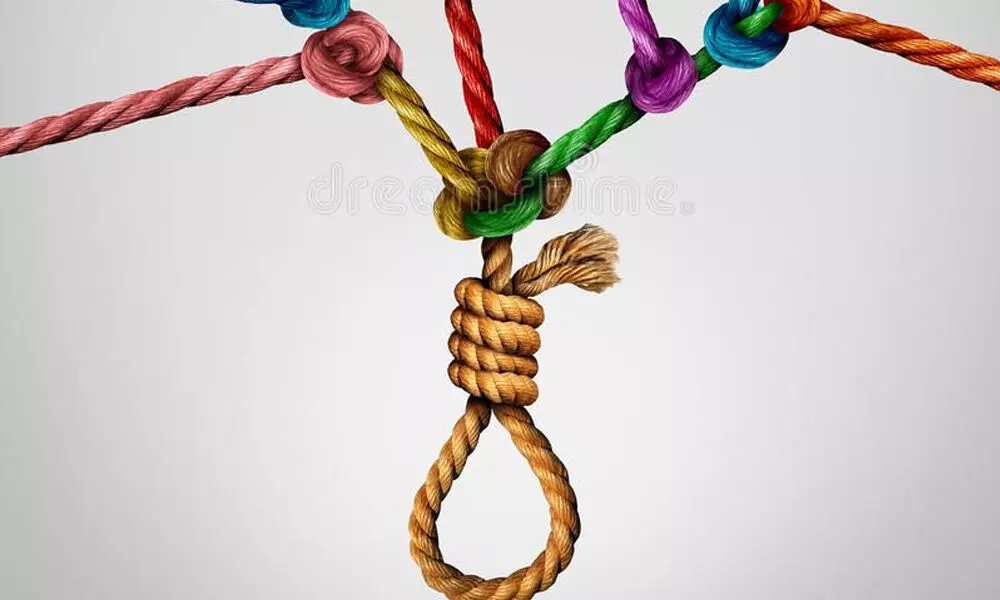Can social exclusion lead to suicide?

Can social exclusion lead to suicide?
Human beings cannot survive without a social net
Human beings cannot survive without a social net. From an evolutionary perspective, a feeling of belongingness is necessary in social life for survival. When people are intentionally excluded from a group, the experience can cause undue psychological stress, leading to depression and suicidal ideation. Inclusion is essential for safety, physical well-being, reproductive success, and mental health. Being excluded can be stressful on a number of fronts and produce negative thoughts that can weaken the immune system and cause physical illnesses in the long run. As paradoxical as it may sound, belongingness is closely linked to our self-esteem.
Belonging to a group defines our social identity, which is a significant component of our individual identity. Social identity is the image of yourself that emerges from the awareness that you belong to one or more groups, which are in turn characterized by their own values and characteristics. Consequently, social exclusion is one of the most painful experiences anyone can go through. Marginalisation of an individual by a group or even being ignored by another individual can negatively affect quality of life. If someone is ignored for a short duration, they can recover from the psychological effects. If the act is prolonged, the effect can turn chronic. Chronic exclusion causes chronic pain, which is associated with high levels of negative emotions and a generally grim prognosis.
The effect of social exclusion
Practically speaking, social exclusion is linked to the risk of unproductivity, poverty and further marginalisation. The social problems related to exclusion are important from sociological, psychological and economic points of view. Such experiences are commonplace and categories of people who are mostvulnerable include single women, unemployed people, the disabled, and the homeless. In truth, all of us undergo a lot of pain when we are excluded from a group.
There are also periods in one's life when one is more vulnerable to such experiences, especially adolescence. It is one of the most important periods for fostering and strengthening social relationships with our peer group. The need for a social identity is the most important need at this stage of life. Acceptance and popularity greatly play an important role at this stage. Exclusion by peers can make one feel unaccepted and create intense negative feelings, which are often exacerbated by bullying.
Bullying is a widespread social behavior that is persistent across all age groups. It is often characterized by violent verbal and physical behavior, apart from indirect psychological aggressions. Bullies intentionally act out such behaviours on their victims repeatedly. It becomes hard to identify when it is acted through peer exclusion strategies, which are quite commonplace but not as easily noticeable.
This is compounded by the fact that newer forms of social exclusion have emerged with new technologies, with cyberbullying and sexting being the most commonly reported. There have been multiple reports of adolescents being mocked, insulted and attacked on social media, so much so that they have had to change schools. Sexting can also lead to social violence if it is done non-consensually, scarring the victims deeply.
How can we address it?
Such occurrences have led to an increase in the risk factor for suicide. It is something that is turning out to be a serious problem in countries across the world. It is time we consider it a global public health problem, and take steps to design and implement appropriate interventions to prevent the suicide cases from going up. Suicide is particularly difficult to deal with because it is deeply tied to a number of religious and cultural traditions. Although researchers and psychological experts have suggested that suicide screening programs and suicide prevention programming at the school level helps lower the rate of suicides, we don't have evidence-based comprehensive programs yet. To make progress on this front, we have to overcome the cultural barriers that prevent dialog and confrontation on these issues that are not only delicate but also come with varying degrees of cultural baggage.
Social exclusion is a complex phenomenon and can be analysed by experts from different disciplines from different points of view, with many possible areas of convergence and divergence. By factoring in quantitative aspects based on neuroscience and qualitative ones based on psychology and sociology, we can deepen our understanding of the subject and come up with useful strategies to promote social inclusion. The pandemic has brought mental health issues to the forefront again and with a potential epidemic looming over the horizon, we need more rigorous research on this subject to foster greater peer unity and prevent suicides.
(The author is an expert in mental health, Director, Poddar Wellness Ltd and MD, Poddar Foundation)








